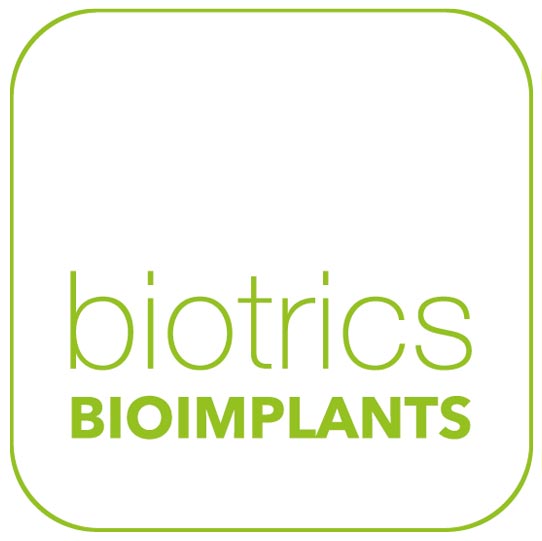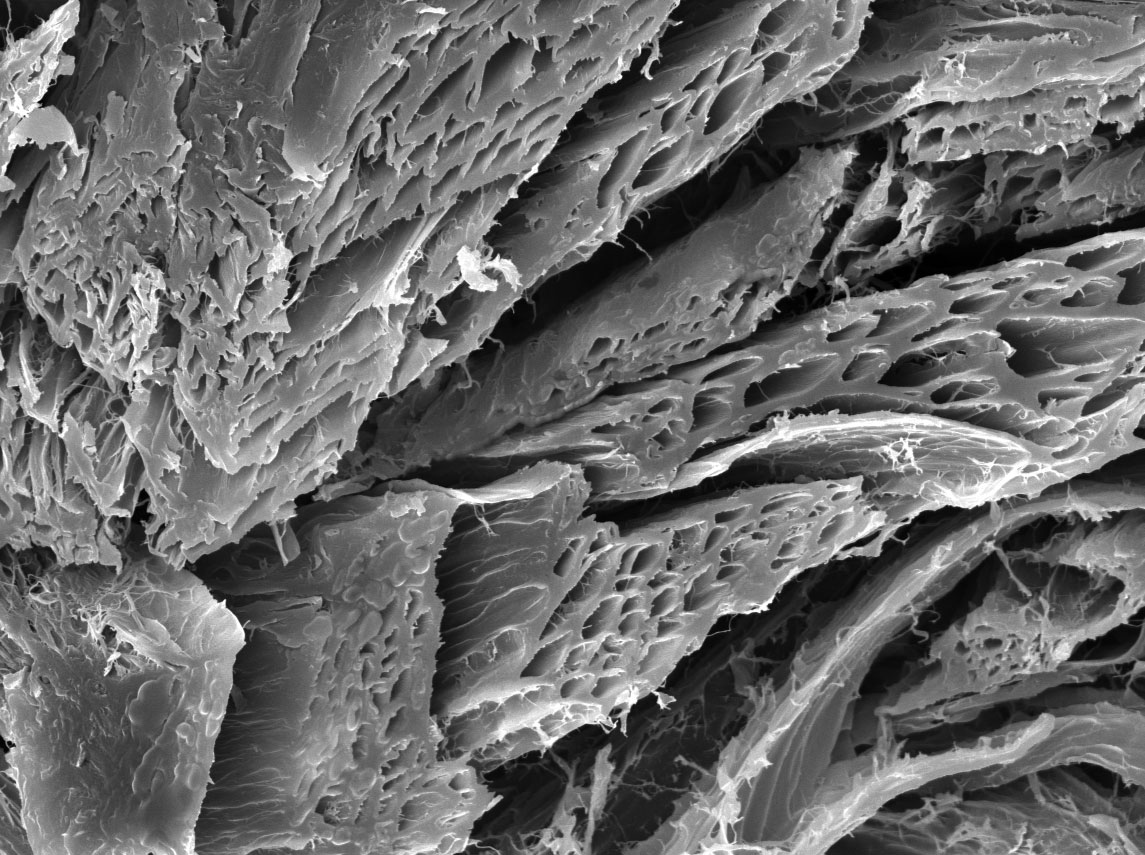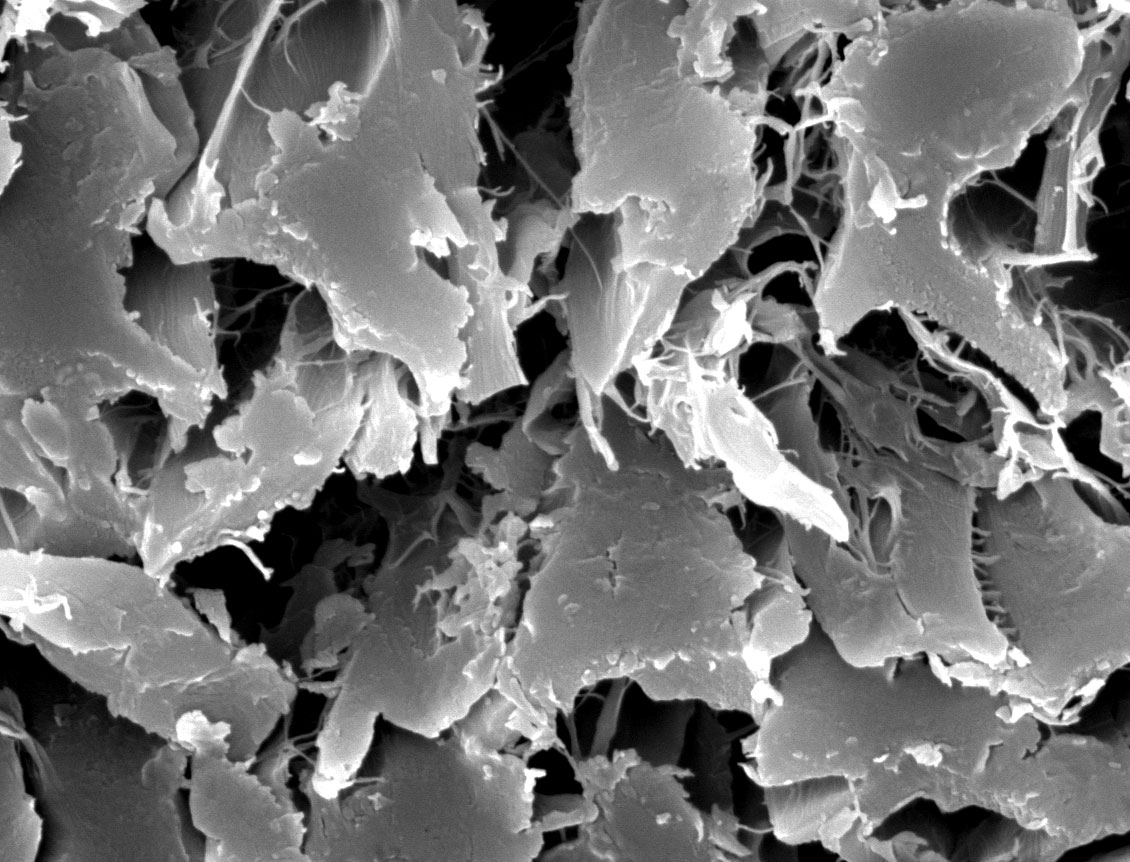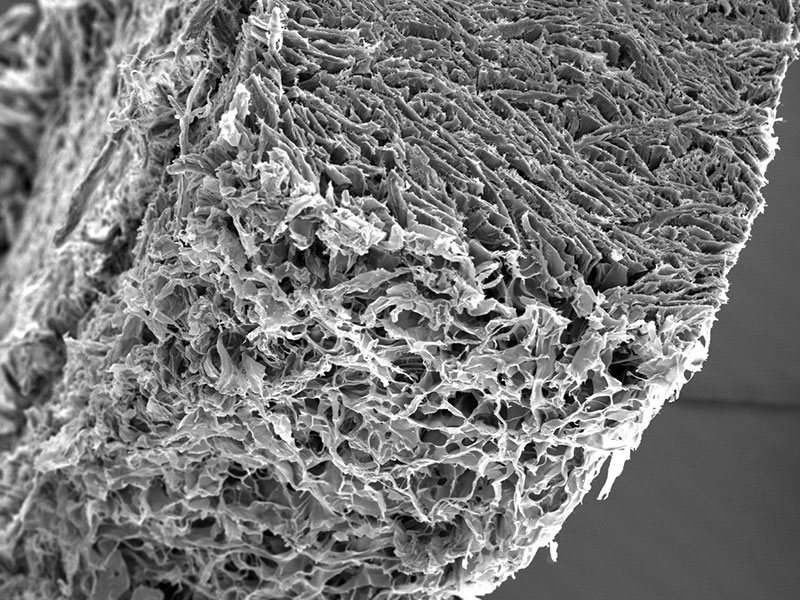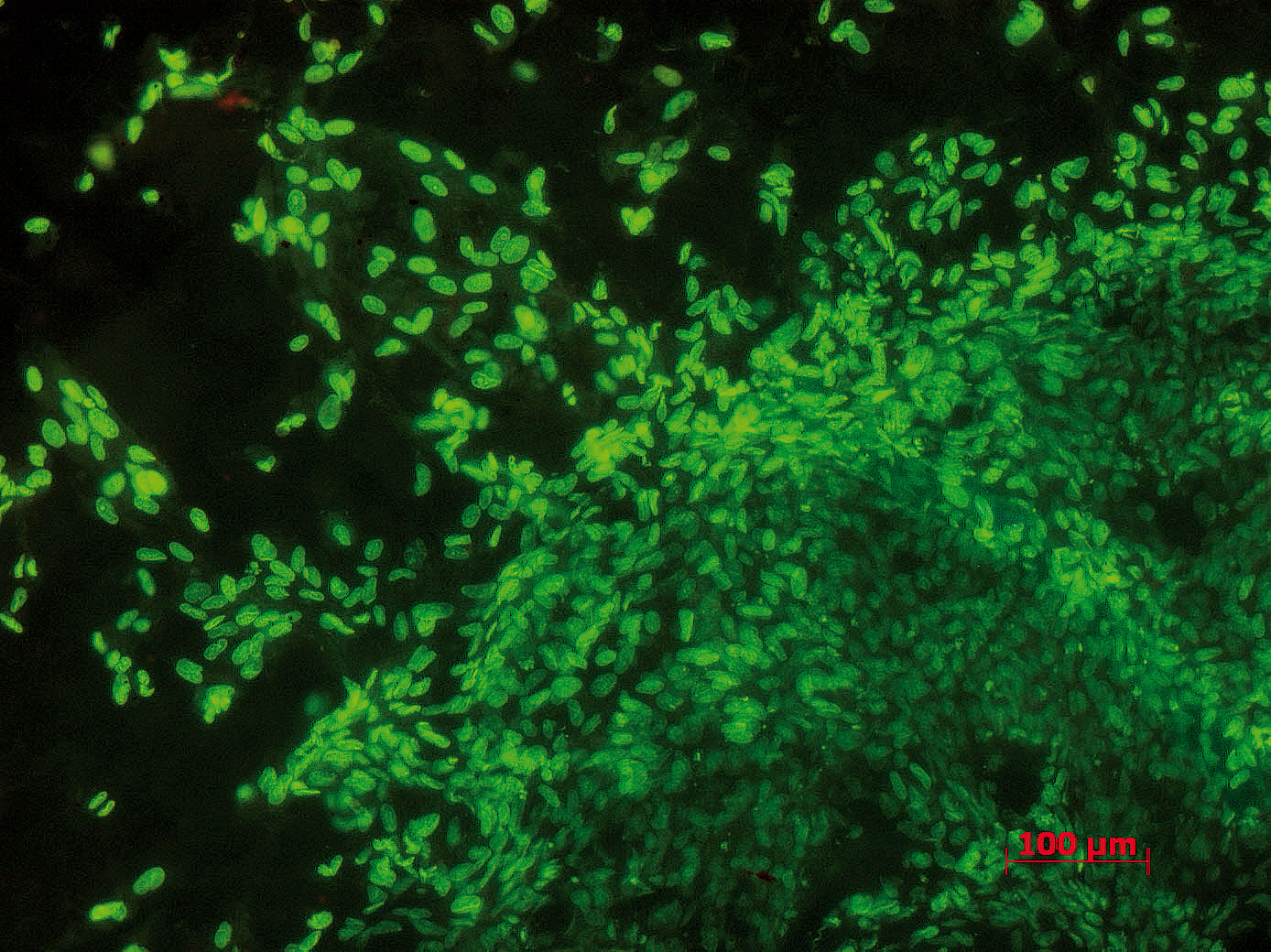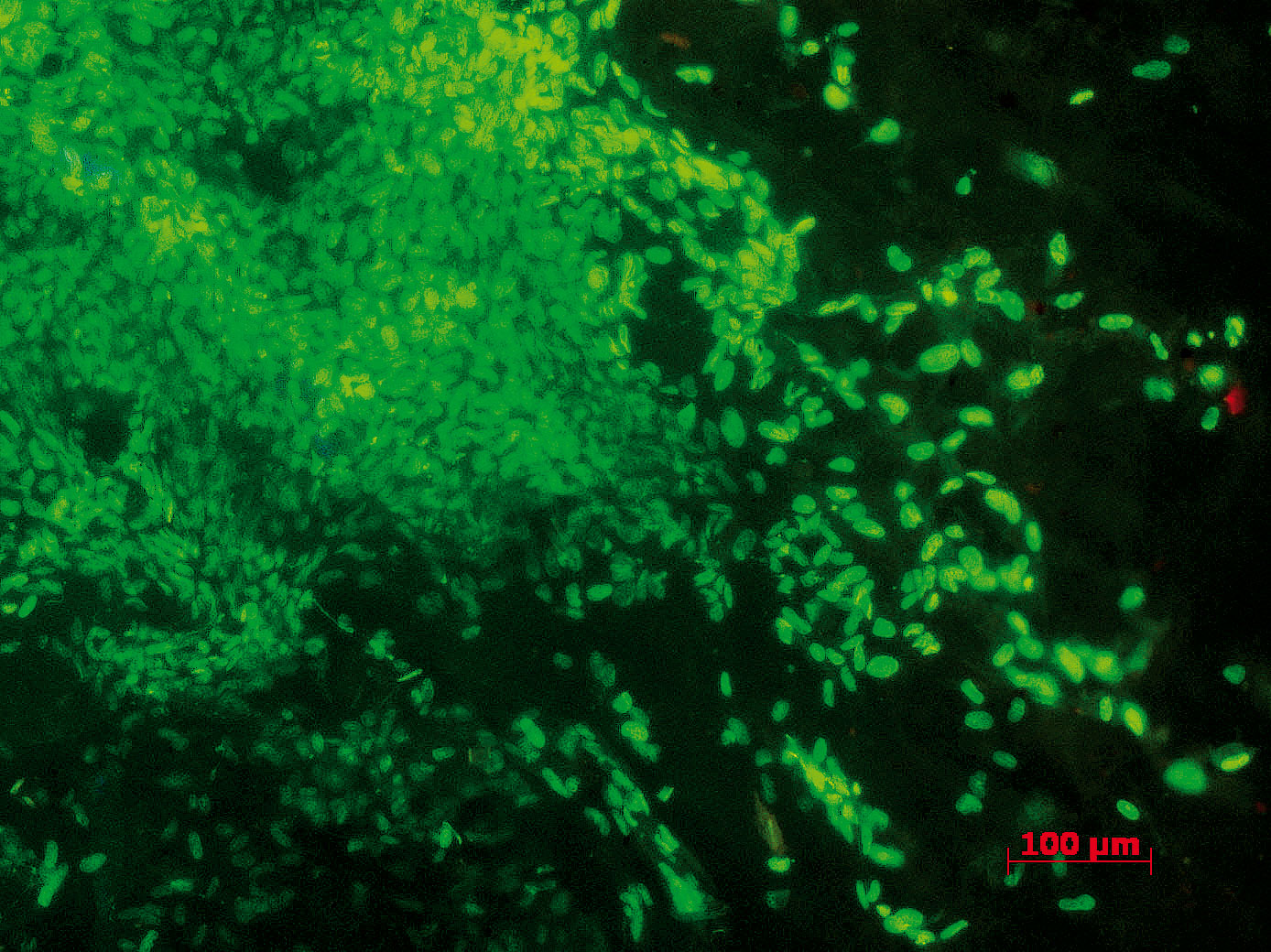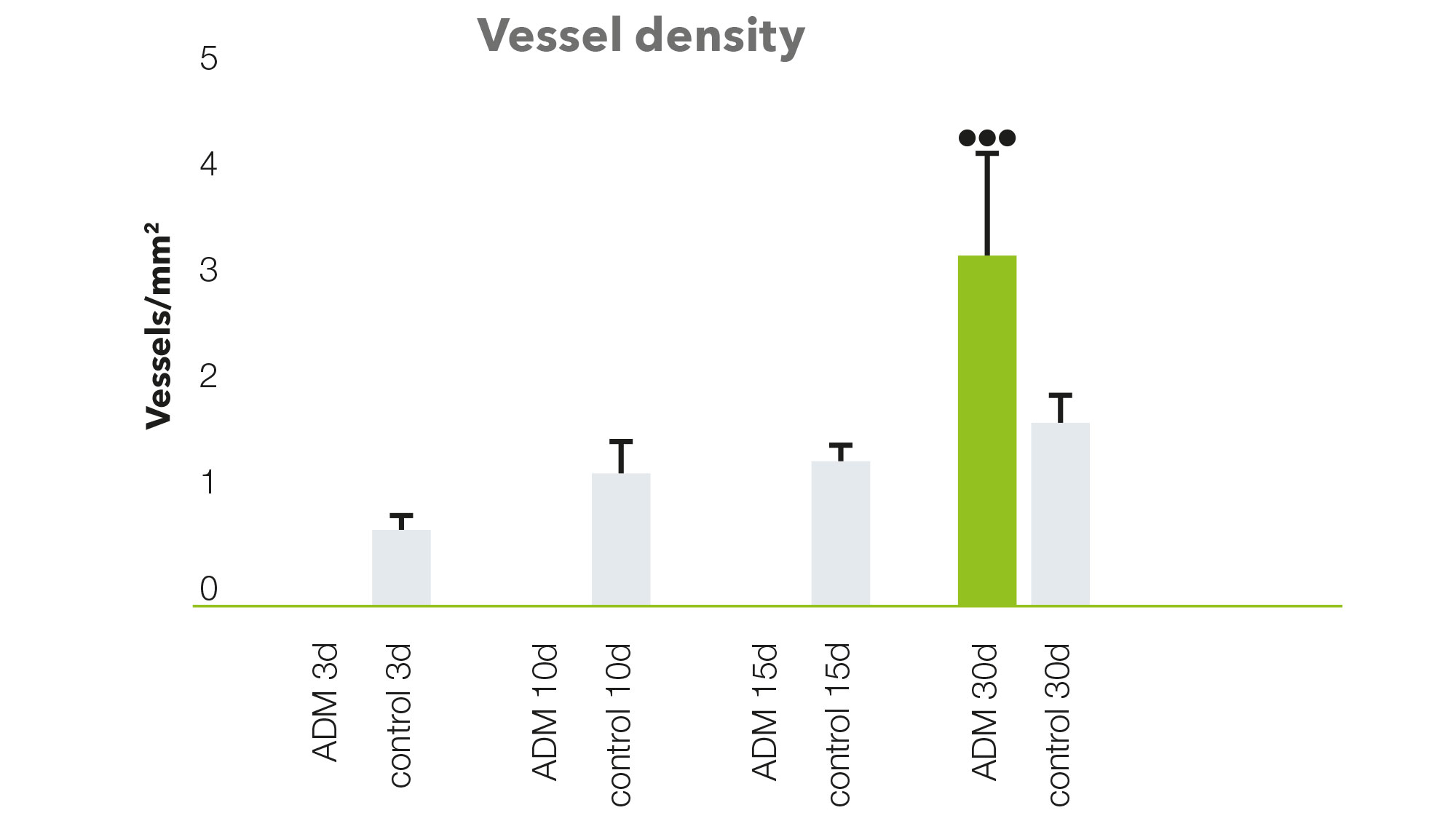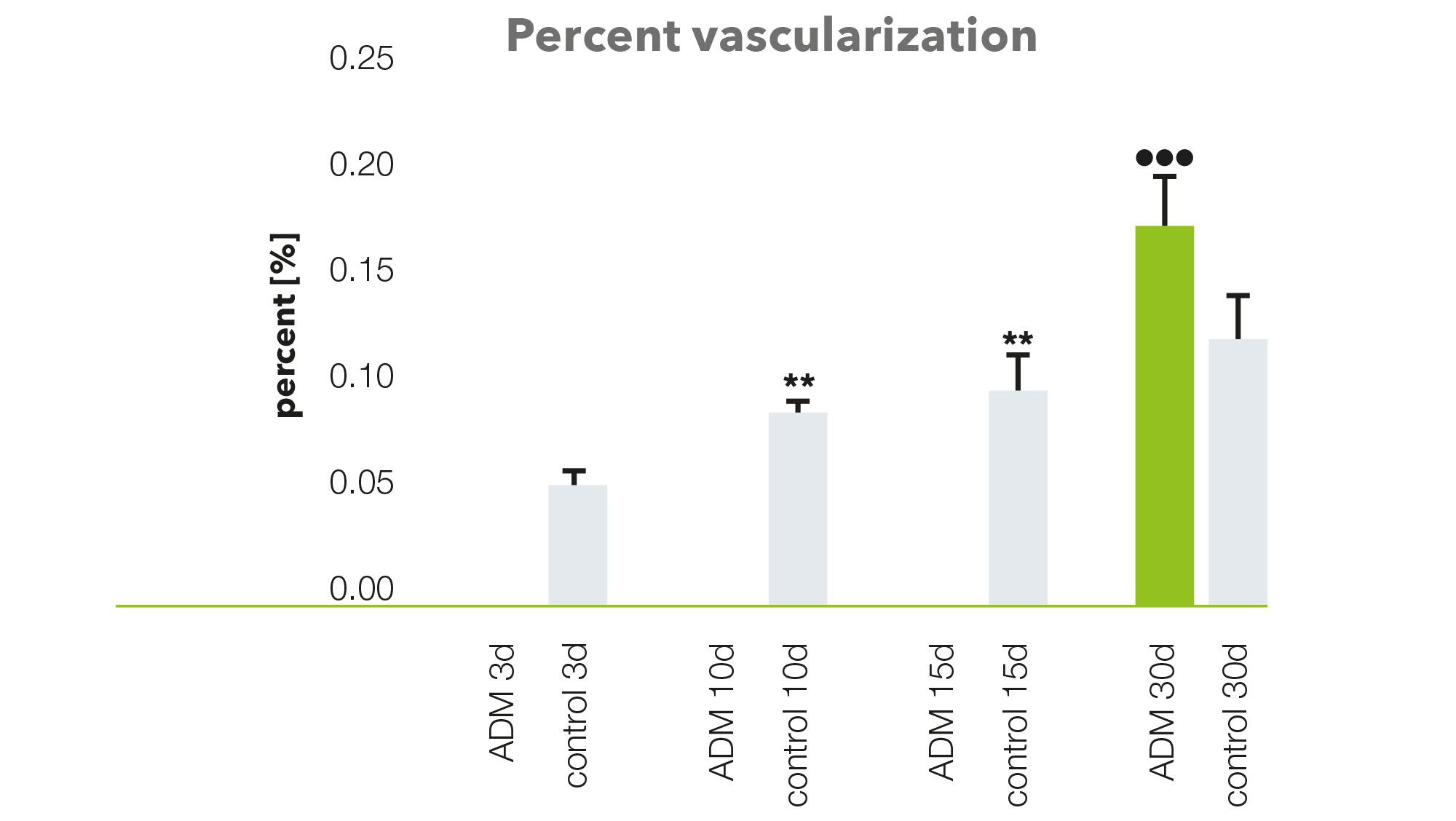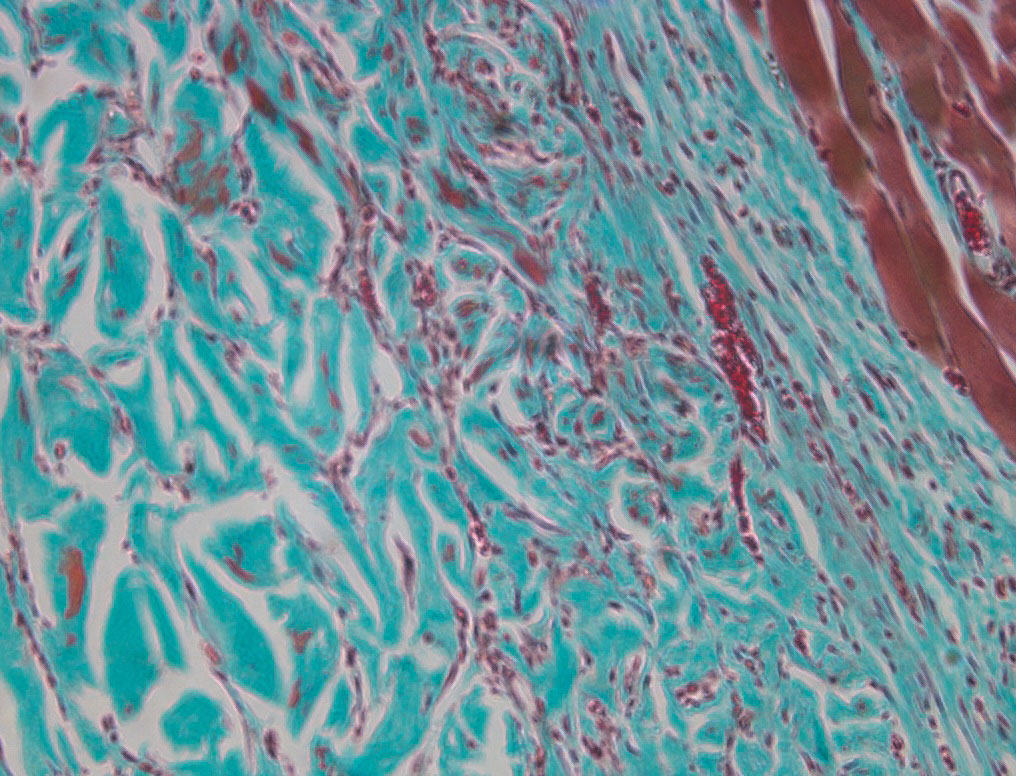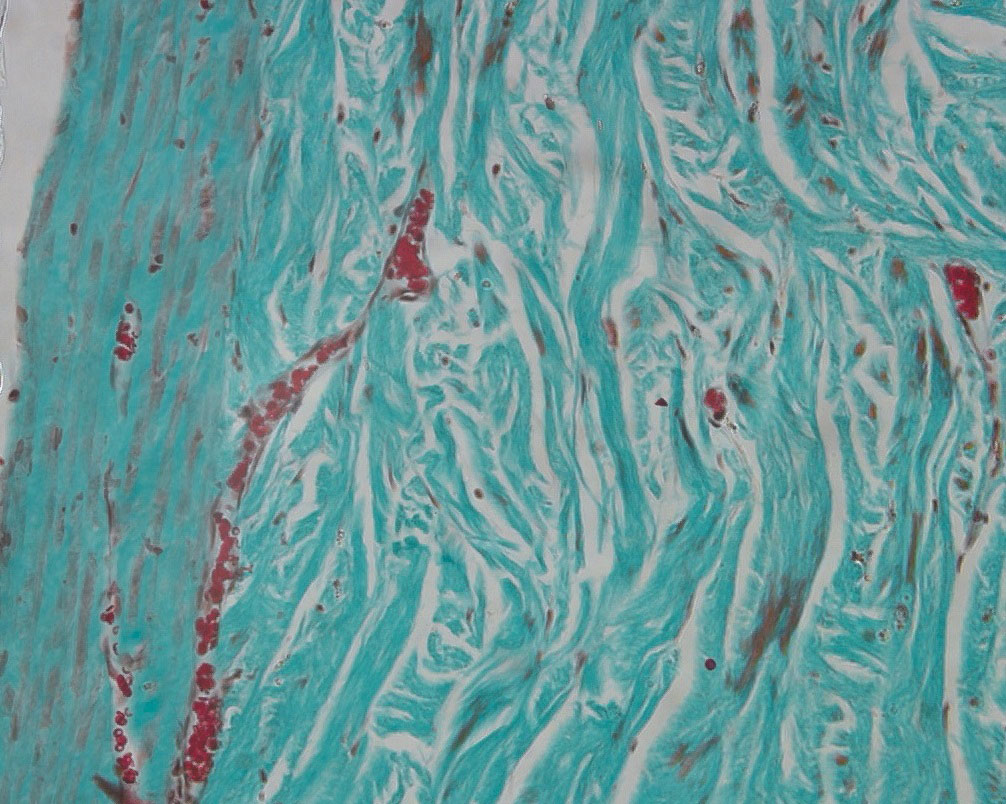
biocade®
Integrative collagen matrix
for plastic and reconstructive surgery
The biocade® collagen matrix was designed to optimally support surgeons in their daily challenges in hernia repair and breast reconstruction. Therefore, biocade® is not only easy and broadly applicable in plastic and reconstructive surgery, but also offers reliable biological functionality.
< click for large view
Scanning electron microscopy
(SEM) images of the biocade®.
SEM images show a compact yet open-pore collagen network for early cell migration and revascularization
Excellent
Suture retention strength
biocade® can be safely sewn and even has a significantly higher average thread suture retention strength than the commonly used USP 3/0* thread material.
* Resorbable and synthetic
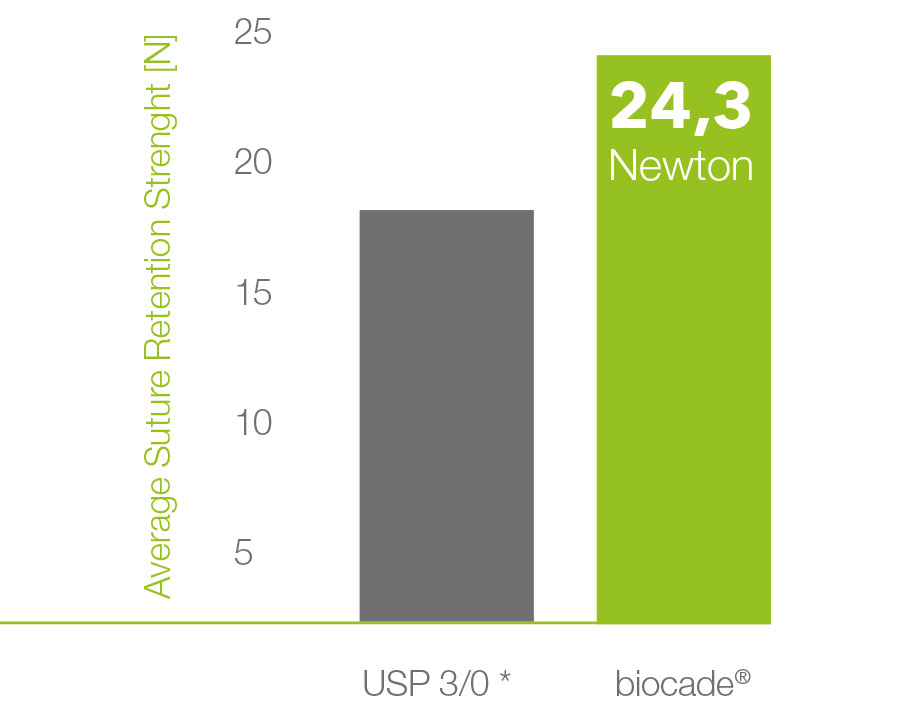
Due to its compact structure, biocade® is characterized by a long resorption profile.
PROPERTIES
- native, porcine collagen matrix similar to
human dermis - no preservatives or cross-linking agents
- rapid healing due to early cell migration and revascularization
- short rehydration term
- Extremely tear-resistant, yet flexible and malleable
- easy handling, securely suturable
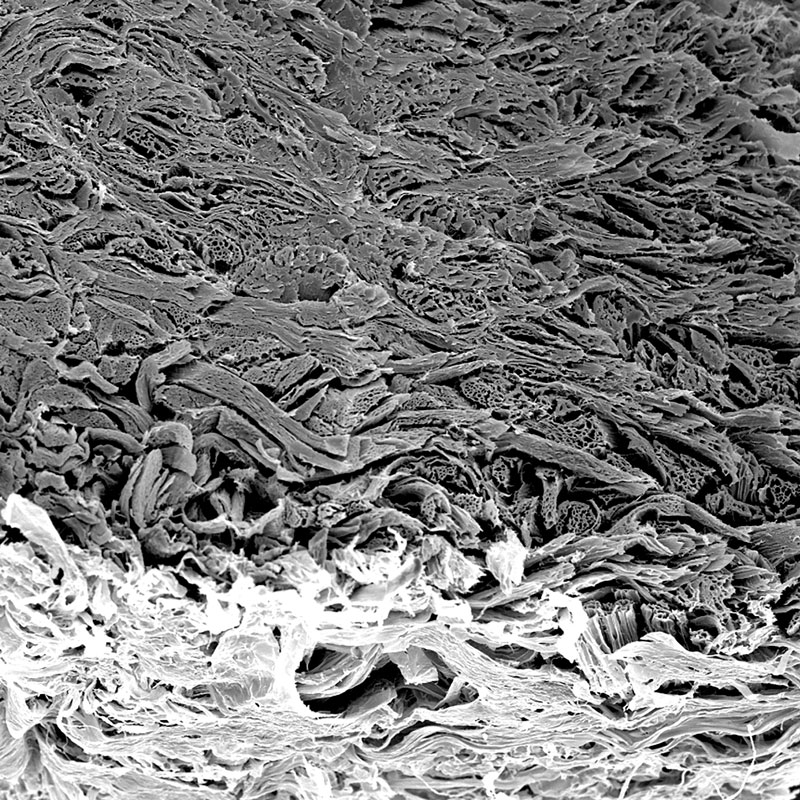
Alba Fricke, MD
Specialist for plastic surgery
“Due to their high biocompatibility and excellent biomechanical properties, I expect collagen matrices such as biocade® to be a safer, more patient-friendly and tolerable alternative to synthetic meshes.”
Collagen:
an essential component of tissues
Breast reconstruction
biocade® is versatile and broadly applicable in various indications – especially when weak subcutaneous fat tissue has to be reinforced during breast reconstruction.
Excellent integration
After implantation of biocade®, regenerative cells are attracted and their proliferation and migration is promoted by the native collagen matrix. biocade® serves as a scaffold structure for the formation of new soft tissue and is completely resorbed.
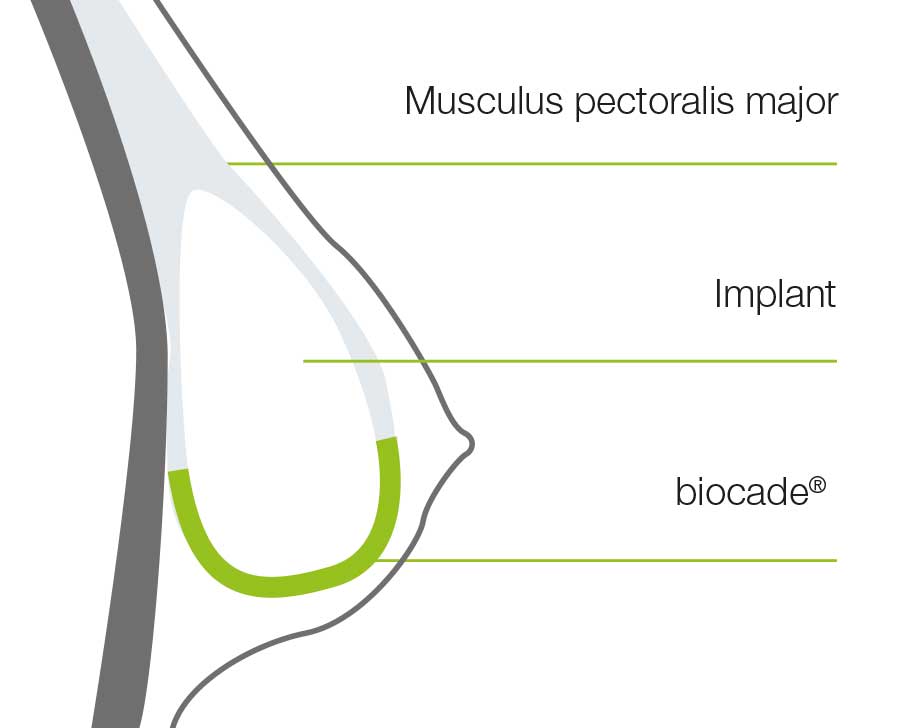
Hernia repair
biocade® is also excellent for hernia repair.
“Incisional hernias are one of the
most common postoperative complications”
(Hoer et al. (2002))
Impressive biomechanical strength
biocade® can be used with the standard hernia repair techniques. Since biocade® does not stick to itself, it is even suitable for laparoscopic placement.
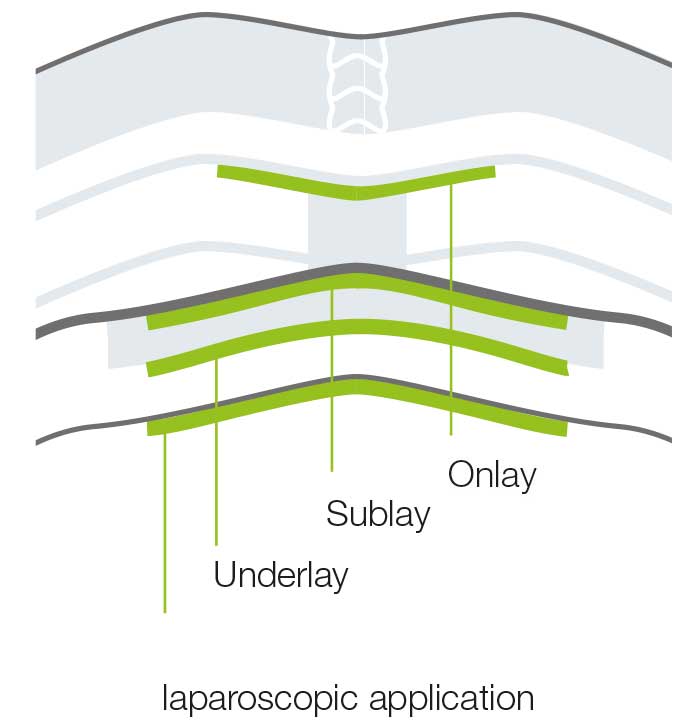
From the product idea to the certified product –
everything from a single source.
At biotrics, we combine more than 10 years of experience in the development and production of collagen matrices. Our development always follows the needs of the user and is adapted to the clinical requirements.
Preservation of the outstanding properties of porcine dermis
Our unique manufacturing process specifically isolates the collagen-containing layers of skin and gently removes all non-collagenous components of the dermis (e.g. foreign proteins, bacteria, viruses, etc.) via a multi-stage purification process. Thus, both the native collagen structure and the very high tensile strength are retained. The deliberate avoidance of artificial crosslinking agents and preservatives ensures the proven tissue friendliness of biocade®.
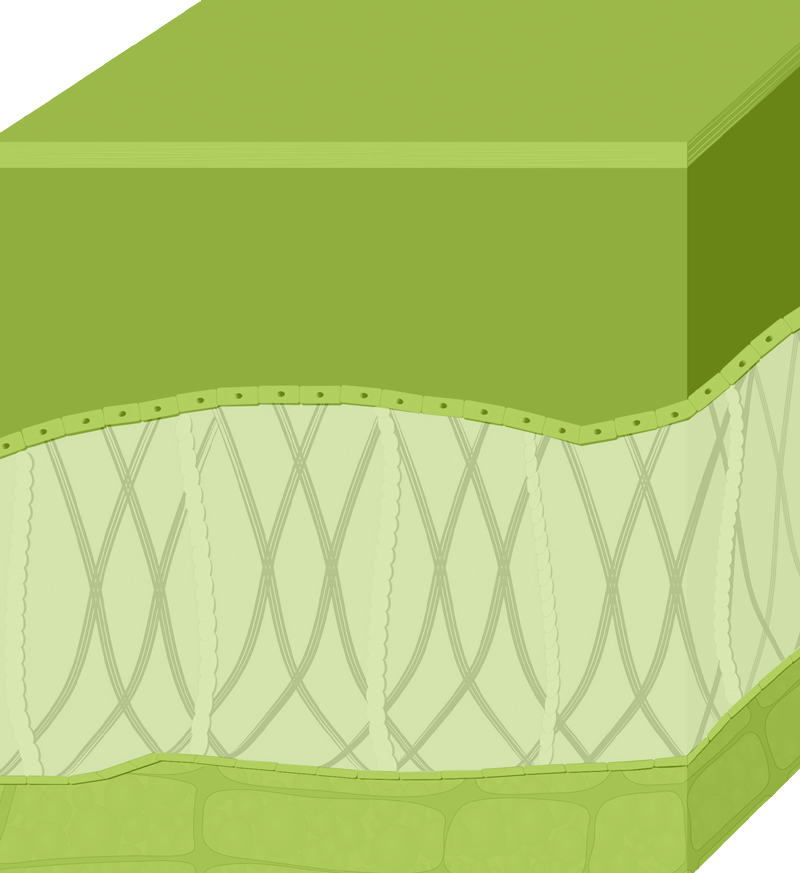
Tensile strength
The tensile tests show that biocade® provides sufficient tensile strength to withstand the physiological stress.
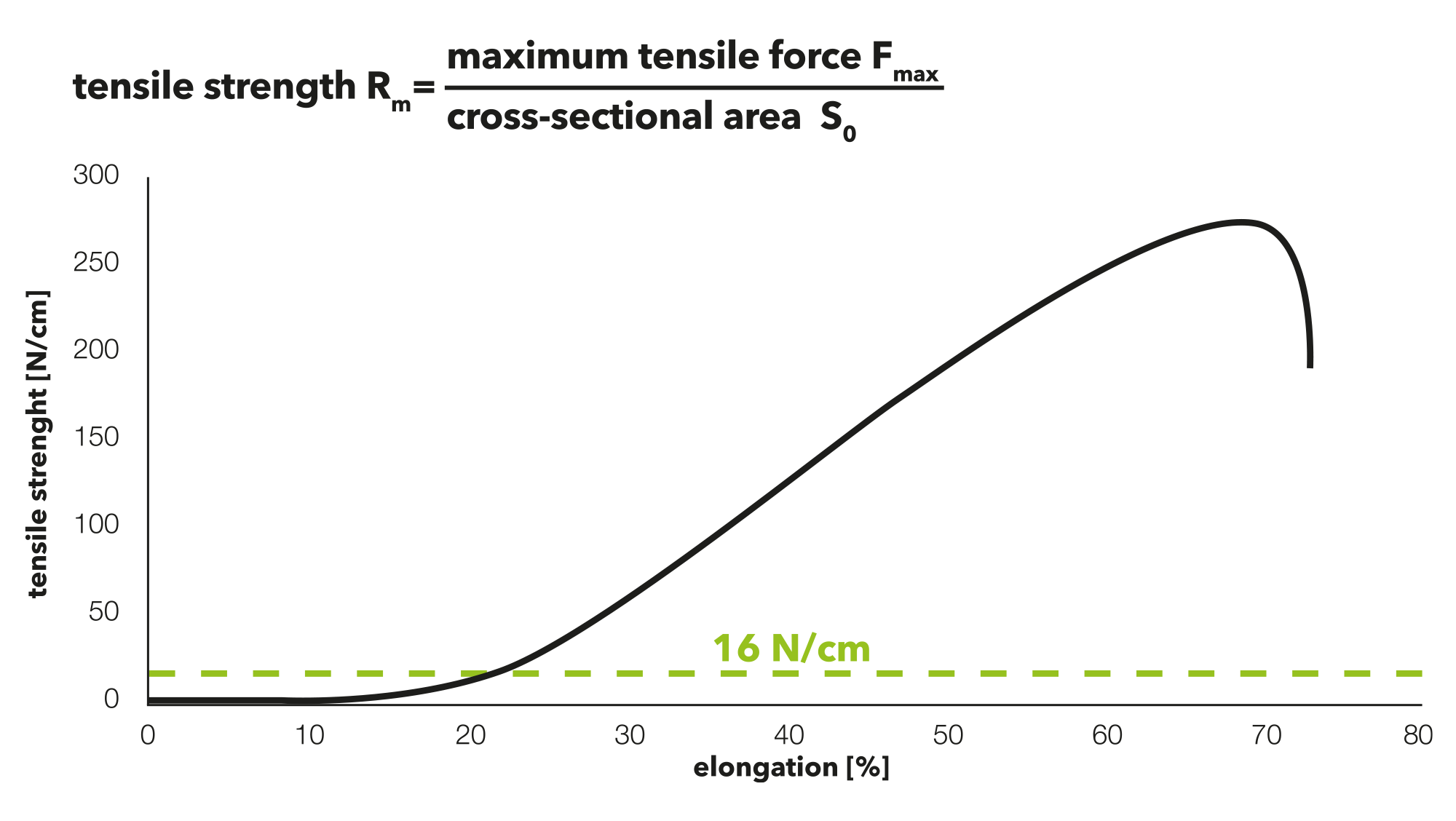
With 23.4 ± 9.2% elongation at 16 N/cm, the rehydrated biocade® meets the established elongation criterion of 10-30% elongation for hernia meshes.
Deeken CR, Abdo MS, Frisella MM, et al. Physicomechanical evaluation of absorbable and nonabsorbable barrier composite meshes for laparoscopic ventral hernia repair. Surg Endosc. 2011 May;25(5):1541-52
biocade®
Free from foreign proteins
Detection of protein purity (SDS-PAGE) of biocade®.
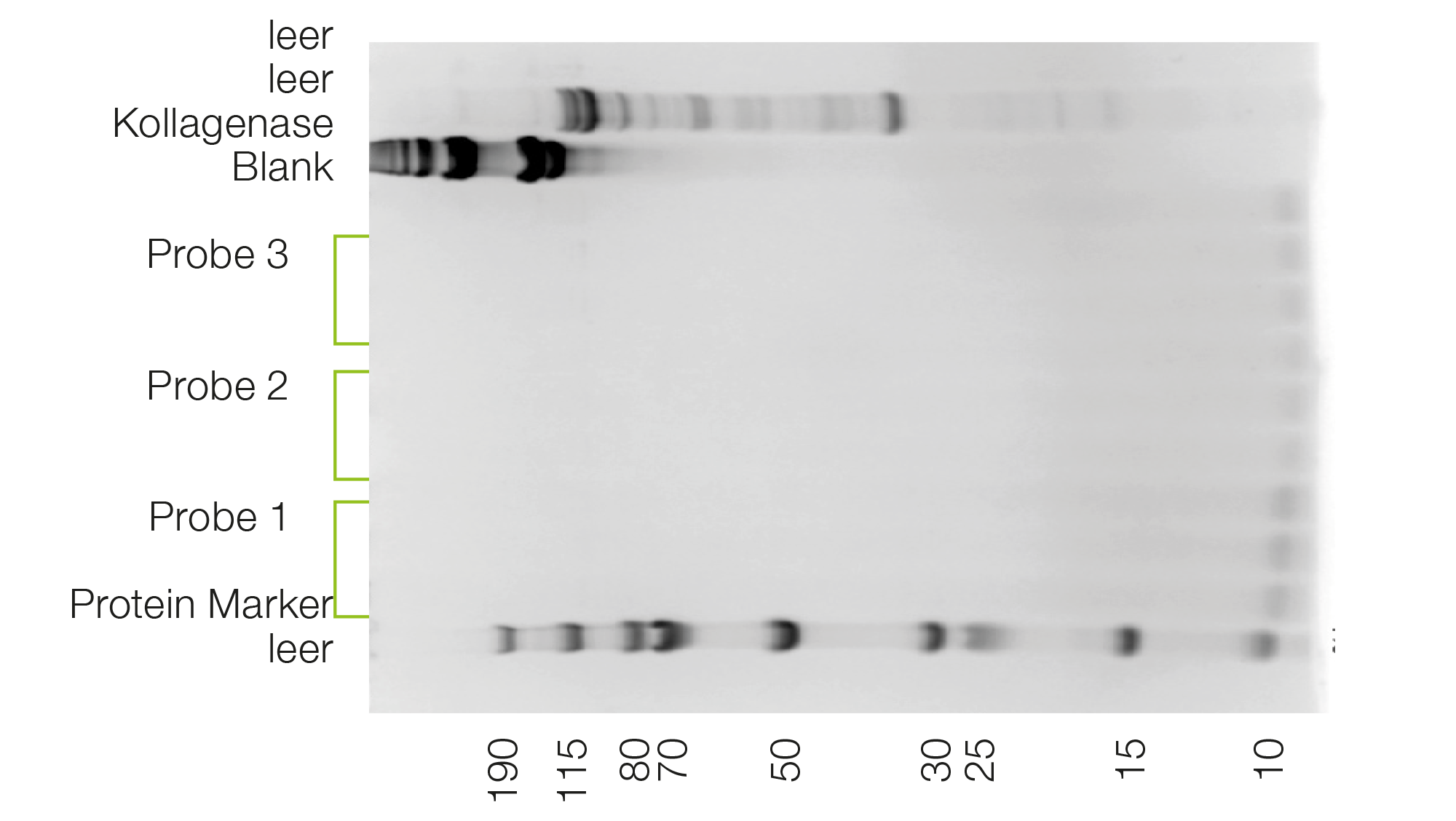
Sample 1-3: each 3-fold determination of enzymatically digested biocade®; blank: undigested/intact biocade®.
Biocompatibility and cell migration
Early vascularization
ADM = acellular dermal matrix, ** = p-value < 0.01 compared to ADM (same time point); — =p-value < 0.001 compared to previous time point.
Adapted with permission: Barbeck M, Lorenz J, Kubesch A, et al. Porcine Dermis-Derived Collagen Membranes Induce Implantation Bed Vascularization Via Multinucleated Giant Cells: A Physiological Reaction? J Oral Implantol. 2015 Dec;41(6):e238-51.
Good integration and long resorption profile
Rothamel D, Benner M, Fienitz T, et al. Biodegradation pattern and tissue integration of native and cross-linked porcine collagen soft tissue augmentation matrices – an experimental study in the rat. Head and Face 2014, 10:10 (personal communication).
In vivo studies demonstrate successful vascularization and early integration due to the open-pore structure of freeze-dried ADMs such as biocade®.
Porcine dermis
as biomaterial
intensively researched, widely used
for integrative collagen matrices from porcine dermis
Flexible solutions for all needs
| Art. No. | Dimensions | Content |
|---|---|---|
| 740001 | 2 x 3 cm | 1 Membrane / Matrix |
| 740002 | 3 x 4 cm | 1 Membrane / Matrix |
| 740003 | 5 x 5 cm | 1 Membrane / Matrix |
| 740004 | 5 x 10 cm | 1 Membrane / Matrix |
| 740005 | 8 x 16 cm | 1 Membrane / Matrix |
| 740006 | 10 x 10 cm | 1 Membrane / Matrix |
| 740007 | 10 x 20 cm | 1 Membrane / Matrix |
Product thickness 1.2 to 1.7 mm
